Franz West at the Tate Modern
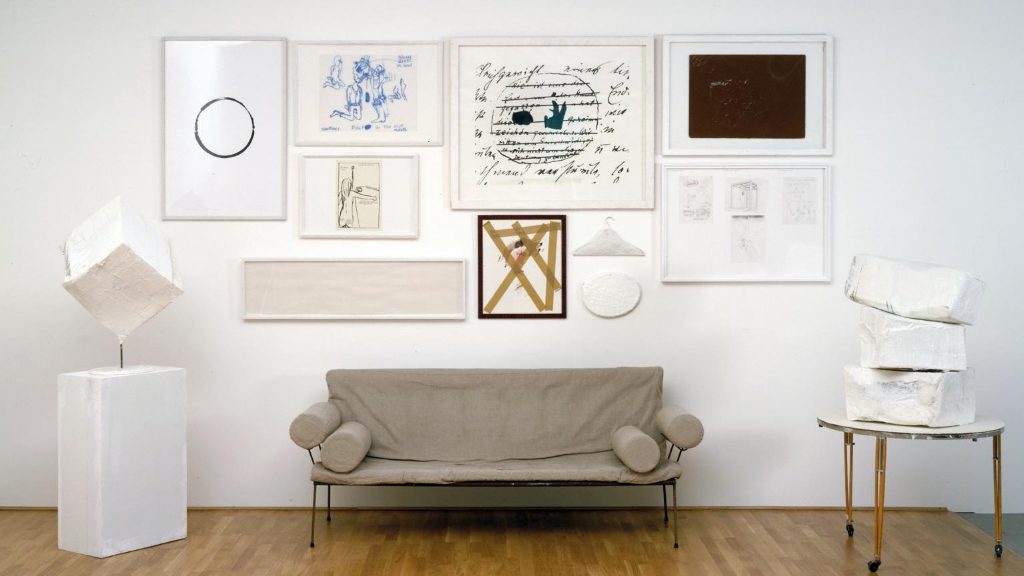
Franz West spent his career poking fun at artists and at the art world. Whenever he was invited to show work at an institution or large gallery, he insisted on making a poster for the event himself, using the crassest hand-written typography. Whenever he was asked to place work outside, he mocked the conventions of monumental sculpture and created luridly coloured works inspired by turds (Tate’s word, not mine). Whenever he made a sculpture, he turned not to bronze or marble, but to empty alcohol bottles, old washing machines and primary-school materials like papier mâché and cardboard. Put together in an exhibition, these elements create an intriguing encounter with insouciance, playfulness and pathos.
The subject’s works are powerful, even in their silliness, undermining artworld conventions – some pieces are intended to be touched or sat upon, and the relationship between sculpture and plinth is inverted. And yet in many ways, West himself was a caricature of a stereotypical artist. Living in Vienna in the 70s and 80s, the figure immersed himself in the city’s artistic café culture, passing through bouts of drinking and drug-taking, getting into fights.
Furthermore, despite his apparent disdain for the art world, he was deeply respectful of many fellow artists, often working with others on series of works. This spirit of collaboration lasted throughout his career, and before his death in 2012 he worked extensively with contemporary artist Sarah Lucas. Tate has cleverly honoured this element of West’s practice by inviting Lucas to contribute to the show’s curation by creating some of the plinths and dividing walls on which West’s work is presented.
The attention to detail here helps to make the show engaging; pastel-coloured wires used to separate onlooker and sculpture deliberately draw attention to Tate’s tools of presentation, and also recall West’s anti-institutional colourful sculptures, highlighting a potential tension and suggesting an awareness of the curatorial issues involved. Appropriately for West’s multifaceted and boundary-breaking practice, the exhibition continues beyond the ticketed space, including sculptures that can be sat on and a number of intriguing large-scale works outside.
While it is often cheeky and playful, West’s work is also deeply concerned with philosophical and psychological theories, drawing particularly on Viennese thinkers such as Freud. Although his work is powerful on a surface level, for those interested in delving deeper, the final room contains a shelf of West’s favourite philosophical books, which are available for perusing at length. This thoughtful exhibition is likely to be a hit with philosophers and fun-lovers alike.
Anna Souter
Featured Image: Franz West, Viennoiserie, 1998
Franz West is at the Tate Modern from 20th February until 2nd June 2019. For further information visit the exhibition’s website here.


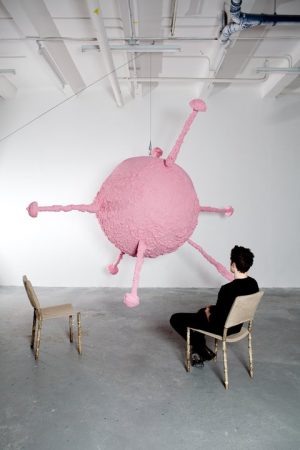
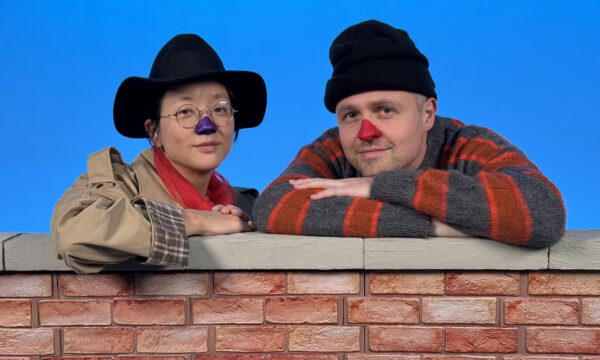
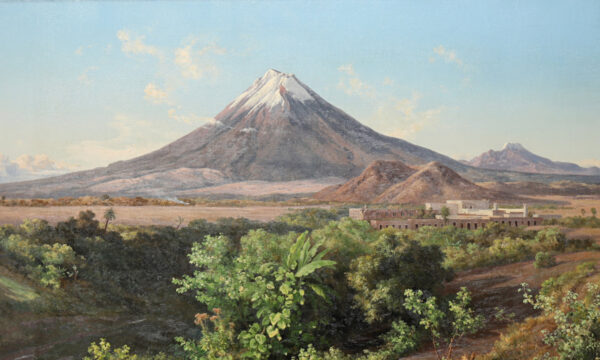
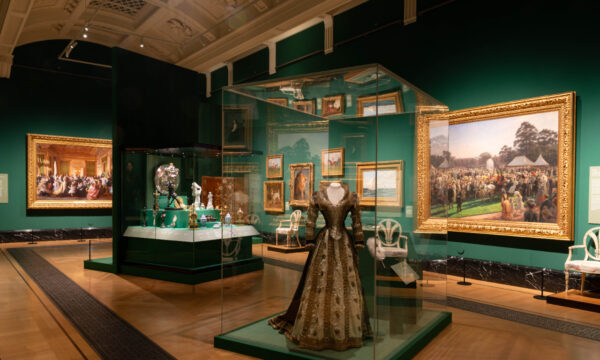
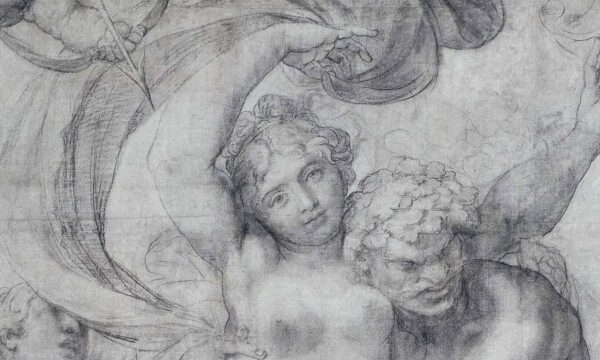
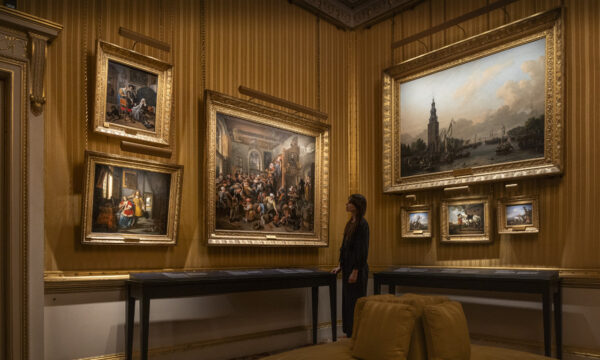
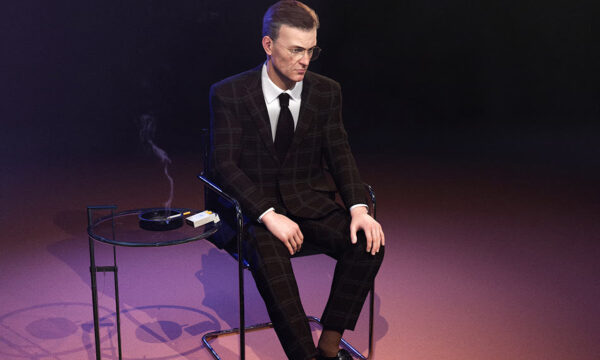
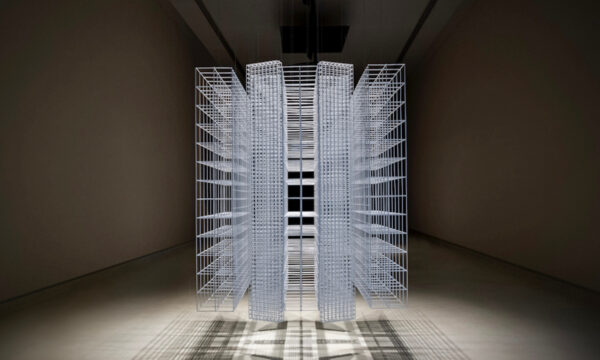
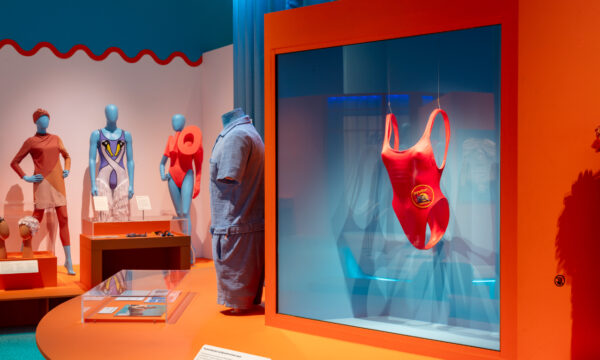
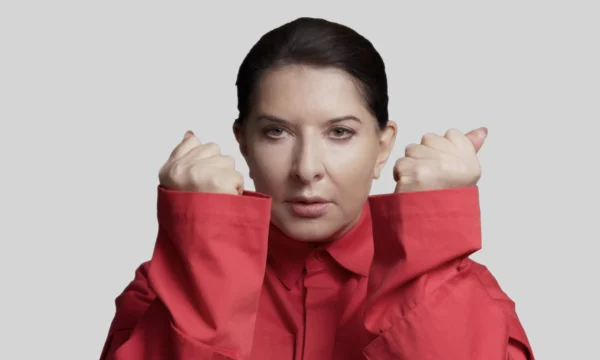
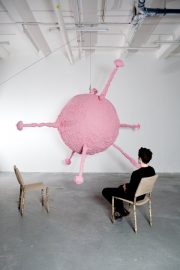














Facebook
Twitter
Instagram
YouTube
RSS